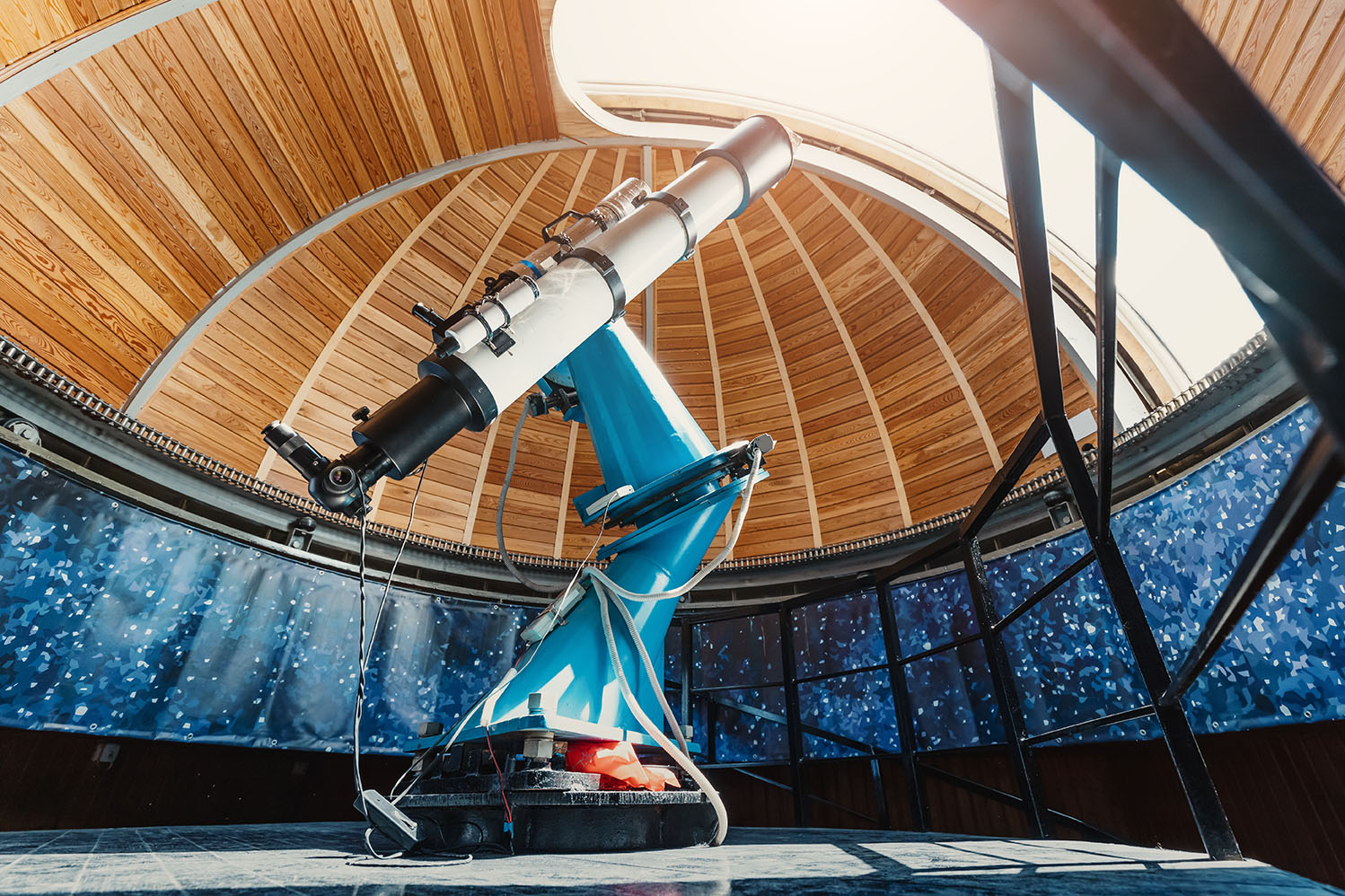

An observatory is a place where scientists and astronomers go to look at the stars and other objects in space. Observatories have special telescopes that help scientists see objects that are very far away.
There are many different types of observatories. Some observatories are located on top of mountains, where there is less light pollution. This means that the stars are easier to see. Other observatories are located in space, where there is no light pollution at all.
Scientists use observatories to learn about the universe. They can study stars, planets, galaxies, and other objects in space. They can also study the atmosphere of Earth and the weather.
Observatories are important for science. They help us to learn more about the universe and our place in it.
The word "observatory" is related to the words "observe" and "observation.".

Aerial panorama view of the Sphinx Observatory on Jungfraujoch - Top of Europe, one of the highest observatories in the world located at the Jungfrau railway station, Bernese Oberland, Switzerland.
The word "observatory" comes from the Latin word "observatorius," which means "of or for observing." The Latin word "observatorius" is also the source of the French word "observatoire" and the Spanish word "observatorio.".
The word "observatory" was first used in English in the 17th century. It was used to refer to a building or institution equipped for making astronomical observations.
What is an observatory?
Address
Developing Experts Limited
Exchange Street Buildings
35-37 Exchange Street
Norwich
NR2 1DP
UK
Phone
01603 273515
Email
hello@developingexperts.com
Copyright 2025 Developing Experts, All rights reserved.